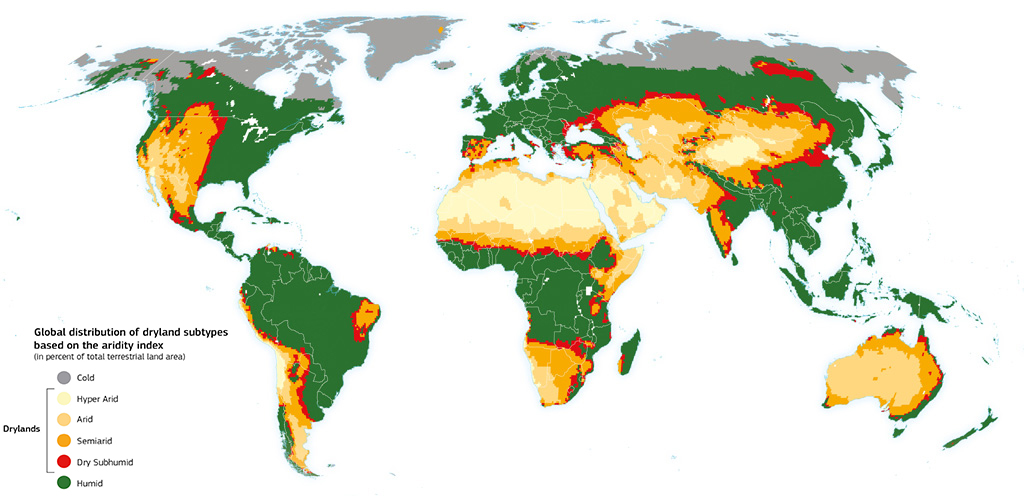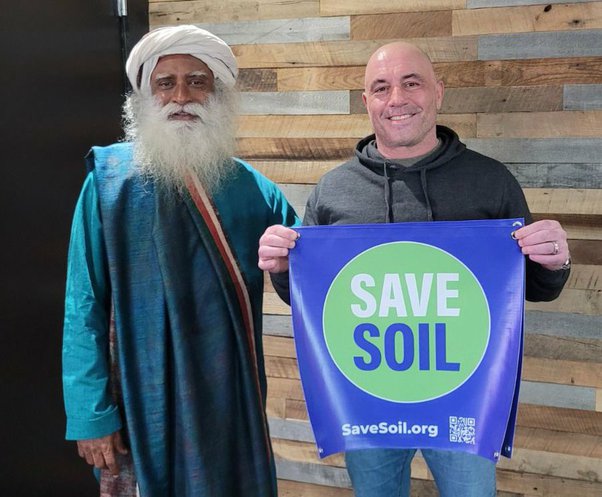Essay
For people unfamiliar with the term, desertification is what happens when poor Land Management continues to such an extent that the land can no longer provide sustenance for people to live. This would also be true if we consider all living things in the area. If the land degrades to the point that it is no longer fertile, no creatures can live there.
I have been studying permaculture a lot lately. Basically I started simply by asking myself what kind of a garden I would like to have. It’s not really a hobby as much as a genuine step towards food security. I’m a vegan and my diet is whole foods and plant-based and it seems kind of foolish to understand that I could probably help myself with a little extra effort.
But the more you study farming techniques, and there is a lot of information out there, you start to land on some very basic concepts such as soil fertility. You also start thinking very deeply about chemical fertilizers and pesticides and what happens to the land when crops are improperly rotated or when there is too much or not enough animal life. And then suddenly you’re listening to voices that seem to say that nature is correct and man is not. And it is at this point that the word desertification crept into my vocabulary for the first time.
I think there is a basic way to look at the problem. And when I say problem, I’m talking about the problem of living on the planet Earth. Currently, there are about 9 billion people, much, much more than have ever been alive at any time in history. We require more food and more material for our basic needs. and we have a lot more people wandering around in need of something to do with their lives. We are talking about 9 billion sentient beings all of whom would like to know what they are supposed to do with their days.
And because of this simple state that we are in, that we have more people than ever in the history of History walking around wondering what they are supposed to do with their days, we have a monumental problem on our hands and I’m afraid the answer is not get a job and make money.
We use very archaic thinking about how to manage ourselves. one can think of human management as easily as managing a garden. You have a certain number of entities that need what they need to live and you have to do something to manage them. If there are more entities than we have food for, it’s not so simple that some of them die. It is often the case that they eat all of the food available before they die and leave nothing left for future generations. and this is about what we’re looking at right now and especially so if you consider automobiles and a material based economy that creates more garbage than the earth can handle.
So the point of this is we need a new perspective. We have to think about this in a new and more clear way. And to be honest with you, this is not the time to wait for the great man in the sky to give us anything and it is especially no longer the time to expect the great corporate or political leaders to stand in place of God and tell us what to do.
The truth is that we need to manage our arable and farmable lands very carefully and truthfully, it must be collectively. We cannot allow the 3% rule that the rich people get everything and the poor people get what scraps are thrown on the floor to continue on this planet. Poor management from economically minded people is exactly what has caused the problems in the world.
Perhaps we could even go back and call the creation of agriculture 7 to 12,000 years ago the culprit. Perhaps the idea of creating a monetary economy based upon trade of goods has created a shark feeding amongst people to do whatever they can with their materials and their animals and their lands so as to make money. but as the weight of a constant economy that supports so many leaders and bureaucrats and middlemen and marketing people and lobbyists and politicians, It all becomes unsustainable. We eat everything in front of us and there is nothing left for us to grow land on.
So, we can check aerial photography. We can ask the space agencies to show us photographs. We can check on the water quality and the amount of topsoil erosion in every country in the world. We can check the air quality and we can allow tiny organizations to wander around planting trees and teaching farming techniques to poor countries or we could just do this collectively one time.
it really is not such a great global choice. it really shouldn’t be measured against war or against people who have great holdings in the oil business. this bits of human nonsense should not even be on the table anymore. We have a giant global problem and the only thing to do is to solve it collectively and that means allowing the responsibility to each individual on the planet to do what they can.
And in terms of individual regions and countries, we have to make a change in the basic method that we feed ourselves. We have to make a change in how we think about transportation costs and for-profit farming concerns. We have to take the money out of food security and we have to take the violence out of our relationship with each other.
I am no expert at digging trenches to allow a watershed to grow and regreen a region. I have a smattering knowledge about planting things that put nitrogen back in the soil or using non-dig methods and making good use of compost and recycling organic materials. I have only the basic knowledge of these things.
But we do have people who are knowledgeable and we can just listen to them and do what they say without measuring their words against material questions or the cost of guns and bullets.
What we have is a problem to solve. And ignoring it will not make that problem go away nor will it solve it. The only thing we can do is to get to work to make sure we right the situation. And if you ask me, this is as good a year as any to get this job done.















